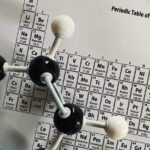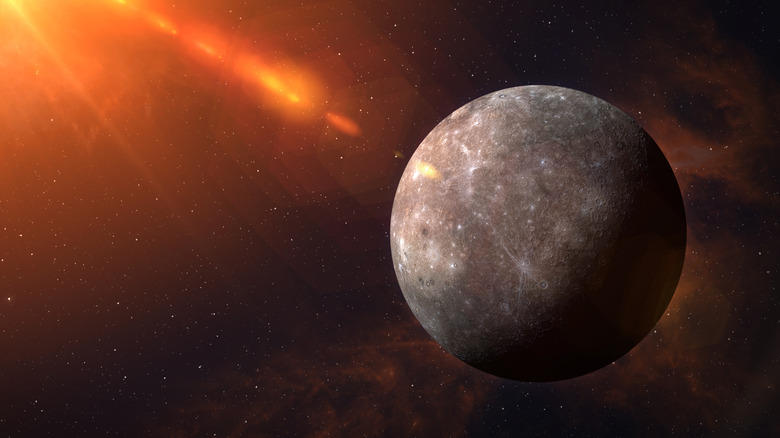
Here’s Why It’s Impossible To Own A Sample Of Every Element On The Periodic Table
The periodic table of elements, or just colloquially, the periodic table, has been one of the key tools in the teaching of chemistry for over a century, as the American Society for Biochemistry and Molecular Biology reports. As a visual aid, the table, developed by Russian chemist Dmitri Mendeleev in 1869, gives key information about each of the known chemical elements — their name, symbol, atomic weight, and so on — while leaving space for other, as-yet-undiscovered elements.
But have you ever wondered if it’s possible to own an actual periodic table? Which is to say, a functional piece of furniture that is shaped like the chemistry teaching aid? And which, for an added bonus, has samples of each of the 118 known chemical elements? Or, putting aside furniture, is it even possible to collect samples of all of the known elements? As it turns out, that’s going to be impossible for the average consumer, for a variety of reasons.
Many of the elements are easy to get
Many of the elements on the periodic table are abundant, inexpensive, unregulated, and easy to obtain, even in their purest (or as close to pure as is possible) forms. For example, you may have gold, silver, or even platinum around your fingers. Oxygen and nitrogen can be purchased by the tank. The last time you had a stomachache, you may have swallowed a concoction made primarily of bismuth (the key ingredient in many over-the-counter indigestion remedies). You might be drinking from an aluminum can right now, or have a roll of aluminum foil in your kitchen.
Other elements can be obtained easily enough through chemical supply distributors or other specialty retailers. Some elements, such as mercury, may require special handling or care, but there’s nothing legally or practically stopping you from buying them. You might find some of them fun to play with. Gallium, for example, has such a low melting point that it will melt in your hand. But unlike mercury, which can be poisonous, gallium is perfectly safe to handle, according to Lenntech.
Other elements are going to be impossible to obtain
If some of the elements on the periodic table can be obtained with minimal fuss, others are going to be out of reach of the average collector, for any number of reasons. For example, some may be illegal for regular consumers to possess. Some may be so prohibitively expensive that a fraction of a gram can cost billions. Some are deadly to be around. Others have only existed under precise laboratory conditions for fractions of a second.
For example, your collection of elements of the periodic table isn’t going to include plutonium. You can’t buy it legally, and if you’re caught with it, prepare for awkward questions from the NSA, Interpol, and everyone else, per Christian Science Monitor.
The element asatine exists in nature, but studying it in a lab has proved problematic, as CERN explains. It required herculean effort, at considerable cost, to produce a tiny amount of it to study. According to Let’s Talk Science, the four elements added to the periodic table most recently (2016) are nihonium, moscovium and tennessine and oganesson. Only a few atoms of each have ever been produced.
70 thoughts on “Here’s Why It’s Impossible To Own A Sample Of Every Element On The Periodic Table”
Leave a Reply
You must be logged in to post a comment.

The Life-Saving Heroics Of Cholera Detective John Snow

Kenneth Feinberg: The Truth About The Lawyer Who Helped 9/11 Victims

What It's Really Like To Work On An Offshore Oil Rig

Caeleb Dressel: The Untold Truth Of The Olympic Gold Medalist

What It Was Like Traveling On The Hindenburg

This Might Happen To Your Body If You Land On Mercury

Robert Wilson: The Truth About The Man Suspected Of Killing The Boston Strangler

What Happens When No One Claims A Dead Body?

Bill Gates' Net Worth Is Even Higher Than You Thought

Can You Still Stay In The Night Stalker's Room At The Cecil Hotel?

























Howdy just wanted to give you a quick heads up. The words in your article seem to be running off the screen in Opera. I’m not sure if this is a formatting issue or something to do with internet browser compatibility but I figured I’d post to let you know. The style and design look great though! Hope you get the problem resolved soon. Many thanks